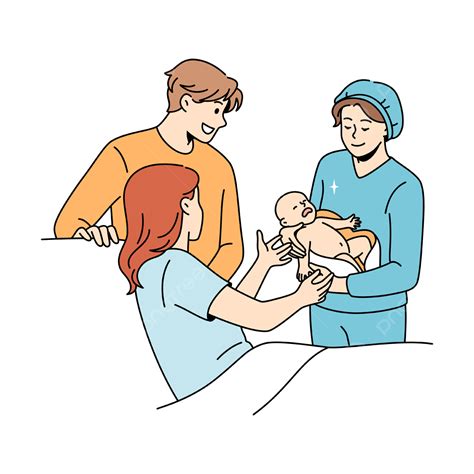
Travel myths, often fueled by fear and misinformation, can deter potential adventurers from experiencing the world, but many common anxieties surrounding international travel are unfounded, stemming from a lack of accurate information and anecdotal exaggerations.
Many perceive international travel as inherently dangerous, a notion frequently debunked by seasoned travelers who share their experiences and insights, challenging widespread misconceptions that often keep people from exploring different cultures and landscapes. These myths range from exaggerated safety concerns to inaccurate portrayals of local customs and health risks.
According to a recent online discussion, many people harbor significant misconceptions about the dangers of traveling abroad. These beliefs are often shaped by sensationalized media coverage, isolated incidents, and a general fear of the unknown. Travelers and expatriates frequently encounter these myths and work to dispel them through their personal experiences and factual information.
One common myth revolves around the idea that certain countries or regions are inherently unsafe for tourists. While it’s essential to research potential risks and take necessary precautions, labeling entire nations as “dangerous” oversimplifies complex realities. Seasoned travelers emphasize that danger levels often vary significantly within a country, and responsible travel practices can mitigate many risks.
Another prevalent myth concerns the notion that travelers will inevitably get sick when visiting certain destinations. While it’s true that travelers may encounter different hygiene standards and unfamiliar foods, simple precautions like drinking bottled water, practicing good hand hygiene, and being mindful of food choices can significantly reduce the risk of illness. Furthermore, many destinations have excellent healthcare facilities readily available to tourists.
Misconceptions also extend to cultural interactions. Some believe that it’s impossible to navigate foreign cultures without causing offense or experiencing negative interactions. However, travelers who approach new cultures with respect, humility, and a willingness to learn often find that their experiences are overwhelmingly positive. Learning a few basic phrases in the local language and being mindful of local customs can go a long way in fostering positive interactions.
Furthermore, many people worry about being scammed or taken advantage of while traveling. While scams do exist, they are not as pervasive as some might believe. Being aware of common scams, being cautious of overly friendly strangers, and trusting one’s instincts can help travelers avoid falling victim to such schemes.
The online discussion highlighted numerous examples of these travel myths and the ways in which they are debunked by experienced travelers. One participant shared their experience of traveling extensively through South America, a region often portrayed as dangerous in the media. They emphasized that while it’s essential to be aware of one’s surroundings and take precautions, they found the vast majority of people to be incredibly welcoming and helpful.
Another participant discussed the myth that all street food is inherently unsafe. They pointed out that street food is an integral part of many cultures and that it can be a delicious and affordable way to experience local cuisine. They advised travelers to look for vendors with high turnover and clean cooking practices to minimize the risk of foodborne illness.
Travelers also debunked the myth that it’s impossible to travel to certain destinations without speaking the local language fluently. While knowing some basic phrases is helpful, many destinations have a thriving tourism industry, and English is widely spoken in tourist areas. Furthermore, translation apps and online resources can help bridge communication gaps.
One recurring theme in the discussion was the importance of doing thorough research before traveling to a new destination. This includes researching potential safety risks, understanding local customs, and learning about common scams. By being informed and prepared, travelers can significantly reduce their risk of encountering problems and enhance their overall travel experience.
Moreover, many travelers emphasized the importance of maintaining a positive and open-minded attitude. Approaching new cultures with curiosity and respect can lead to enriching and transformative experiences. By challenging their own preconceived notions and embracing the unexpected, travelers can gain a deeper understanding of the world and its people.
The internet has become an invaluable tool for debunking travel myths and providing accurate information to potential travelers. Online forums, travel blogs, and social media platforms offer a wealth of firsthand accounts and practical advice from experienced travelers. By tapping into these resources, individuals can make informed decisions about their travel plans and overcome the fears that often hold them back.
Ultimately, the decision to travel is a personal one, and it’s essential to weigh the potential risks and rewards. However, by debunking common travel myths and providing accurate information, it’s possible to empower individuals to make informed choices and experience the joys of exploring the world. The shared experiences and insights from seasoned travelers serve as a powerful counterpoint to fear-mongering and misinformation, encouraging others to embark on their own adventures and discover the world for themselves. The world is not nearly as dangerous as many are led to believe.
Here’s a more in-depth exploration of common travel myths, supplemented with expert insights, statistical data where available, and actionable advice for prospective travelers:
1. The “Everywhere is Dangerous” Myth:
- The Myth: This is a broad generalization that paints entire countries or regions as inherently unsafe for tourists. It’s often fueled by media sensationalism of isolated incidents.
- The Reality: Danger levels vary significantly within countries. Large cities may have higher crime rates than rural areas. Tourist zones often have increased security.
- Expert Insight: “It’s crucial to differentiate between perceived risk and actual risk,” says security consultant, Mark Thompson. “Research crime statistics, but also understand the context. A high crime rate in one area doesn’t mean the entire country is a no-go zone.”
- Debunking Data: According to the World Bank, the homicide rate varies dramatically between countries. Some nations are demonstrably safer than others. Websites like the U.S. State Department and the UK Foreign Office provide travel advisories, but it’s important to interpret these advisories with nuance. A Level 2 advisory (“Exercise Increased Caution”) doesn’t necessarily mean the country is riddled with danger. It simply means there are factors to be aware of.
- Actionable Advice:
- Research specific areas: Don’t rely on blanket statements about an entire country.
- Consult multiple sources: Cross-reference government advisories with travel blogs, forums, and news reports from reputable sources.
- Consider local perspectives: Talk to people who live in the area you’re planning to visit.
- Register with your embassy: This allows them to contact you in case of an emergency.
- Have travel insurance: It can cover unexpected incidents.
- Trust your instincts: If a situation feels unsafe, remove yourself from it.
2. The “You’ll Definitely Get Sick” Myth:
- The Myth: This fear revolves around unfamiliar food, water, and hygiene standards inevitably leading to illness.
- The Reality: While travelers’ diarrhea is a common ailment, it’s often preventable with simple precautions. Many destinations have high-quality healthcare available.
- Expert Insight: “Hygiene standards can vary significantly,” says Dr. Emily Carter, a travel medicine specialist. “But with proper planning, you can minimize your risk of illness. Vaccination and prophylactic medication are important and will make a difference.”
- Debunking Data: The CDC (Centers for Disease Control and Prevention) provides detailed information on recommended vaccinations and health precautions for specific destinations. Studies show that travelers who adhere to these guidelines have a significantly lower risk of illness.
- Actionable Advice:
- Get vaccinated: Consult your doctor well in advance of your trip to get necessary vaccinations.
- Drink bottled or purified water: Avoid tap water, ice cubes, and even brushing your teeth with tap water in certain regions.
- Practice good hand hygiene: Wash your hands frequently with soap and water, or use hand sanitizer.
- Be mindful of food choices: Eat at reputable establishments, avoid raw or undercooked foods, and be cautious of street food vendors.
- Consider travel insurance: Ensure your policy covers medical expenses and evacuation in case of illness.
- Pack a travel first-aid kit: Include essentials like diarrhea medication, pain relievers, antiseptic wipes, and bandages.
- Know where to find medical care: Research local hospitals and clinics in advance.
3. The “You’ll Be Scammed” Myth:
- The Myth: This fear centers on being targeted by con artists and pickpockets, leading to financial loss and a negative travel experience.
- The Reality: Scams exist, but they’re not as widespread as many believe. Awareness and caution can significantly reduce your risk.
- Expert Insight: “Scammers often prey on tourists’ naivety and unfamiliarity with their surroundings,” says security expert, John Davis. “Being aware of common scams and remaining vigilant is key to protecting yourself.”
- Debunking Data: Travel forums and websites often list common scams in specific destinations. By researching these scams in advance, travelers can be better prepared to recognize and avoid them.
- Actionable Advice:
- Research common scams: Learn about the scams prevalent in your destination.
- Be cautious of overly friendly strangers: Scammers often use charm and deception to gain your trust.
- Protect your valuables: Keep your money and passport secure, and avoid displaying expensive jewelry or electronics.
- Be wary of unsolicited offers: Don’t accept help from strangers unless you’ve specifically requested it.
- Trust your instincts: If something feels off, remove yourself from the situation.
- Use ATMs inside banks: This reduces the risk of ATM skimming.
- Negotiate prices in advance: Before accepting a service or purchasing an item, agree on the price to avoid being overcharged.
4. The “You’ll Offend the Locals” Myth:
- The Myth: This fear revolves around inadvertently violating cultural norms and causing offense, leading to awkward or negative interactions.
- The Reality: Approaching new cultures with respect, humility, and a willingness to learn can lead to positive and enriching experiences.
- Expert Insight: “Cultural sensitivity is paramount,” says anthropologist, Dr. Sarah Johnson. “Learning a few basic phrases, dressing appropriately, and being mindful of local customs can go a long way in building positive relationships.”
- Debunking Data: Travel guides and online resources provide information on local customs and etiquette. By researching these customs in advance, travelers can avoid inadvertently causing offense.
- Actionable Advice:
- Research local customs: Learn about appropriate dress, greetings, and dining etiquette.
- Learn a few basic phrases: Knowing how to say “hello,” “thank you,” and “excuse me” in the local language can be greatly appreciated.
- Be respectful of religious sites: Dress modestly and remove your shoes when entering religious buildings.
- Ask for permission before taking photos: Some people may not want to be photographed.
- Be mindful of your body language: Certain gestures or expressions may have different meanings in different cultures.
- Observe local behavior: Pay attention to how people interact with each other and try to emulate their behavior.
- Be patient and understanding: Cultural misunderstandings can happen, but a little patience and understanding can go a long way in resolving them.
5. The “You Need to Speak the Language Fluently” Myth:
- The Myth: This belief suggests that traveling to a country where you don’t speak the language fluently is impossible or inherently difficult.
- The Reality: While knowing some basic phrases is helpful, many destinations have a thriving tourism industry, and English is widely spoken in tourist areas. Translation apps and online resources can also help bridge communication gaps.
- Expert Insight: “Language barriers can be challenging, but they don’t have to be insurmountable,” says language instructor, Maria Rodriguez. “Even knowing a few basic phrases can make a big difference, and there are many tools available to help you communicate.”
- Debunking Data: Surveys show that English is widely spoken in many tourist destinations around the world. Translation apps like Google Translate have become increasingly sophisticated and can be used to communicate in real-time.
- Actionable Advice:
- Learn a few basic phrases: Focus on essential phrases like “hello,” “thank you,” “excuse me,” “where is,” and “how much does it cost?”
- Use a translation app: Download a translation app to your phone or tablet.
- Carry a phrasebook: A phrasebook can be a helpful resource, especially in areas where internet access is limited.
- Use gestures and visual aids: Don’t be afraid to use gestures and point to objects to communicate.
- Be patient and persistent: It may take some effort to communicate, but don’t give up.
- Learn key words on maps for transport, accommodation, etc: This would help you navigate better.
- Take lessons: If the idea of being unable to communicate in a foreign land is intimidating, take some lessons online to learn basic greetings and phrases.
In conclusion, while traveling does involve certain risks, these risks are often overstated and can be mitigated with careful planning, preparation, and a healthy dose of common sense. By debunking these common travel myths, individuals can feel more confident and empowered to explore the world and experience the many benefits that travel has to offer.
Frequently Asked Questions (FAQ) About Travel Myths:
1. Is it really safe to travel to countries with high crime rates?
It depends on the specific areas within the country and the precautions you take. Research crime statistics for specific cities or regions you plan to visit. Avoid high-crime areas, be aware of your surroundings, protect your valuables, and avoid walking alone at night. Consider traveling with a group or hiring a local guide. Remember that tourist areas often have increased security.
2. How can I avoid getting sick when traveling to a country with different hygiene standards?
Get vaccinated before you travel and consult your doctor. Drink bottled or purified water and avoid tap water, ice cubes, and undercooked foods. Practice good hand hygiene by washing your hands frequently with soap and water or using hand sanitizer. Eat at reputable establishments, and be cautious of street food vendors. Consider taking probiotics to boost your immune system.
3. What are some common travel scams I should be aware of?
Common travel scams include pickpocketing, fake police officers, taxi scams, ATM scams, and fake tours. Be cautious of overly friendly strangers, protect your valuables, and avoid displaying expensive jewelry or electronics. Use ATMs inside banks, and negotiate prices in advance. If someone approaches you with an offer that seems too good to be true, it probably is.
4. How can I avoid offending locals when traveling to a new culture?
Research local customs and etiquette before you travel. Learn a few basic phrases in the local language. Dress modestly and remove your shoes when entering religious buildings. Ask for permission before taking photos of people. Be mindful of your body language and avoid making gestures that may be considered offensive. Observe local behavior and try to emulate it. Be patient and understanding, and apologize if you accidentally offend someone.
5. Do I need to speak the local language fluently to travel to a foreign country?
No, you don’t need to speak the local language fluently, but knowing some basic phrases can be helpful. Many tourist destinations have English speakers. Download a translation app to your phone or tablet. Carry a phrasebook with you. Use gestures and visual aids to communicate. Be patient and persistent, and don’t be afraid to ask for help. It makes the journey easier if you can read key words on transport maps and accommodation signs in the native tongue.









